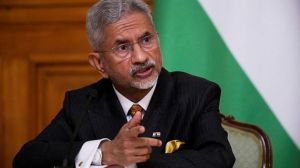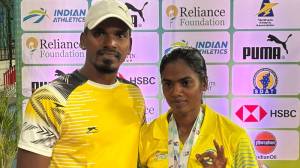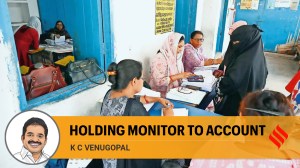Click here to join Express Pune WhatsApp channel and get a curated list of our stories
Bridging the research gap: India and Sri Lanka collaborate on endometriosis
The two gynaecologicial conditions have remained severely under-researched in low and middle income countries.
 Women struggle with misdiagnosis and inadequate treatment, highlighting the need for awareness and early detection. (File/Representational)
Women struggle with misdiagnosis and inadequate treatment, highlighting the need for awareness and early detection. (File/Representational)For years, Swapnali (name changed), a resident of Pune, struggled with irregular periods and debilitating menstrual cramps. Since the age of 17, she was repeatedly prescribed vitamin and iron supplements and advised bed rest, leading to frequent absences from college. Even after marriage at 24, her symptoms worsened, and her inability to conceive for three years added to her distress.
It was only when she sought medical help for infertility—nearly a decade after her symptoms began—that she was diagnosed with severe endometriosis.In India, the average delay in diagnosing endometriosis ranges from 5 to 11 years, with the condition often mistaken for common menstrual disorders.
“Endometriosis and adenomyosis remain among the most misdiagnosed and neglected women’s health conditions, often leading to years of unnecessary suffering. This misdiagnosis leads to inadequate management, allowing the disease to progress unchecked,” said Dr Rahul Gajbhiye, Scientist E at Indian Council of Medical Research- National Institute for Research in Reproductive and Child Health who has been leading endometriosis research in India for two decades. He is among the authors of a new study published in The Lancet Regional Health- Southeast Asia that outlines research priorities for these conditions
“Swapnali’s story reflects the larger struggle faced by countless women, highlighting the urgent need for greater awareness, early detection and multidisciplinary care to prevent years of unnecessary suffering,” Dr Gajbhiye, who is also the nodal officer at Model Rural Health Research Unit, Kasabe-Vani, Nashik, told The Indian Express
.
“Endometriosis has been typically associated with autoimmune disorders, and thorough investigations in every affected woman must be done to rule out such comorbidities. These cases highlight the urgent need for early and accurate diagnosis of endometriosis, as well as multidisciplinary centres equipped to identify and manage associated comorbidities, ensuring that affected women receive timely and appropriate care,” he stressed.
Citing another instance of misdiagnosis, Dr Gajbhiye highlighted the case of a 34-year-old woman in rural West Bengal. “She was experiencing heavy menstrual bleeding and pelvic pain and was diagnosed with ovarian cancer at a local clinic. In search of affordable treatment, her family travelled to a leading cancer hospital in Mumbai, where doctors found that she did not have cancer but endometriosis—a condition that typically goes undiagnosed for years. She was then referred to a specialized gynaecological hospital, where she finally received the correct treatment through laparoscopic surgery,” Dr Gajbhiye added.
The two gynaecologicial conditions have remained severely under-researched in low and middle income countries. Recognizing the urgent need for targeted research, subject experts met at a workshop in Colombo last year and discussions led to the development of a strategic road map for research in both countries India and Sri Lanka. This led to the publication of a health policy in The Lancet Regional Health-South East Asia.
Dr. Hrishikesh Munshi, Scientist C at ICMR-NIRRCH, Mumbai and the study’s lead author, outlined how the research provides a roadmap for the future. “We are laying the groundwork for evidence-based policymaking and improved healthcare services by identifying key priorities and challenges. The collaboration between India and Sri Lanka is a model for regional research partnerships that can be expanded across Asia.”
“Translation of our recommendations in action can lead to better healthcare policies, early detection programmes, and improved treatment outcomes for affected women. We aim to develop collaborations in India and in the Southeast Asian region. With the given expertise that India has in the subject, we can lead this consortium and benefit millions of women worldwide,” Dr Gajbhiye added.
Click here to join Express Pune WhatsApp channel and get a curated list of our stories








